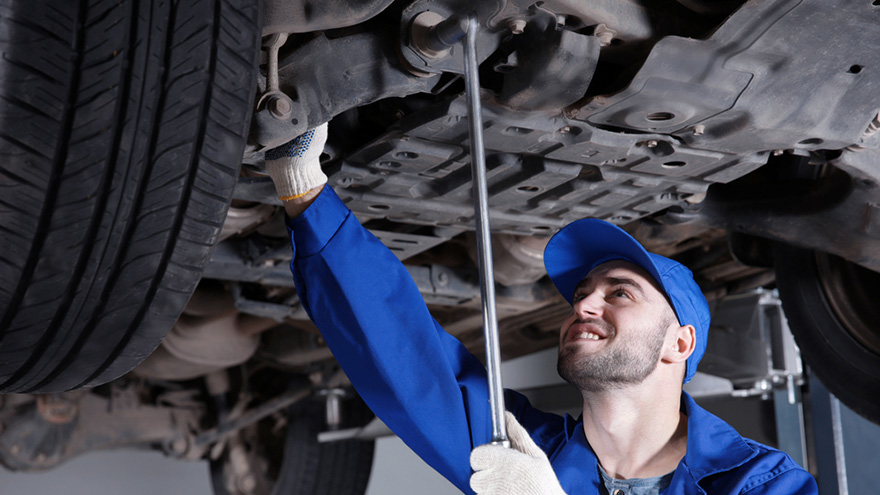89 percent of Autolist survey participants want recall info disclosed by dealer

By subscribing, you agree to receive communications from Auto Remarketing and our partners in accordance with our Privacy Policy. We may share your information with select partners and sponsors who may contact you about their products and services. You may unsubscribe at any time.
SAN FRANCISCO –
Your potential buyers likely want to know if the vehicle they’re considering has features such as smartphone integration, all wheel drive or an extended warranty.
And, according to Autolist’s latest study, consumers overwhelmingly favor a nationwide law requiring dealers to disclose whether a used vehicle has an open recall, too.
The survey, conducted in early June, found that 89 percent of current vehicle shoppers agree that dealers should be required to disclose whether a vehicle they’re selling has an open recall and whether it’s been fixed.
Autolist’s study also found that more than half of consumers look into recall information before buying a vehicle, two-thirds of owners of recalled vehicles get them fixed in three months or less and that most consumers will still consider buying a brand again despite experiencing a recall.
The firm pointed out that recalls affect a wide swath of the American public; roughly 30.7 million vehicles were recalled in 2017. On average, only about 75 percent of recall issues are fixed annually, according to the National Highway Traffic Safety Administration.
Autolist explained this large number of recalls — particularly those stemming from the Takata airbag inflator crisis in recent years — increases the likelihood that used vehicles with open recalls are sold to consumers without them knowing.
Subscribe to Auto Remarketing to stay informed and stay ahead.
By subscribing, you agree to receive communications from Auto Remarketing and our partners in accordance with our Privacy Policy. We may share your information with select partners and sponsors who may contact you about their products and services. You may unsubscribe at any time.
Currently, no federal agency has the authority to ban the sale of vehicles with open recalls.
Recent efforts to enact legislation in Congress have failed. Policing the advertising of used vehicles with open recalls falls to the Federal Trade Commission, which does not require used-car dealers to explicitly disclose whether a vehicle they’re selling has an open recall.
Since 2016, the existing industry precedent set by FTC dictates that automakers and dealers cannot claim or imply that their vehicles are safe or have been thoroughly inspected unless that vehicle is free from open recalls or if the companies disclose the recall in “close proximity to the inspection claims.”
This means that only if the dealer makes claims about that vehicle’s safety in its advertising or presents it as “certified pre-owned” do they also have to mention its recall status.
This has earned the ire of consumer advocate groups, who say the “close proximity” language is too vague and that the FTC isn’t doing enough to protect consumers from potentially deceptive advertising of vehicles that have open recalls.
Just under 40 percent of consumers (39 percent) said they’ve had a vehicle recalled while they owned it; 52 percent said they hadn’t; seven percent said they weren’t sure and two percent said they weren’t sure what a vehicle recall was.
Despite a quarter of recalled vehicles remaining unfixed nationally, only eight percent of respondents in Autolist’s survey who experienced a recall said they didn’t get their recalled vehicle fixed at all.
Forty-four percent said they had it fixed in less than a month after being notified; 24 percent had it fixed within one to three months; nine percent had it fixed within three to 12 months and four percent took longer than a year to have it fixed.
Of the consumers who experienced recalls, safety and time stood out as their main concerns about the recall. Thirty-five percent said their main concern after being notified about the recall was the vehicle’s safety until it was repaired. Thirty-three percent of consumers polled were most concerned with the time it would take to fix their recalled vehicle.
Another 13 percent of respondents were most concerned about the cost of the repair, though it’s worth noting that most recalls are done at no cost to the vehicle owner, including the cost of a loaner vehicle during the repair.
When it comes to shopping for a new vehicle, the issue of recalls is on the minds of just over half of car shoppers, Autolist’s study found. Fifty-five percent of respondents said they look at recall info before buying a car; the remaining 45 percent said they do not.
Finally, Autolist found that recalls didn’t have an overwhelming impact on consumers’ faith in the brands that were recalled.
Sixty-eight percent of respondents said they would still buy the brand of vehicle recalled again in the future; 9 percent said they would not and 23 percent said they were unsure.
Autolist surveyed 1,126 current vehicle shoppers in June about the issue of recalls.


